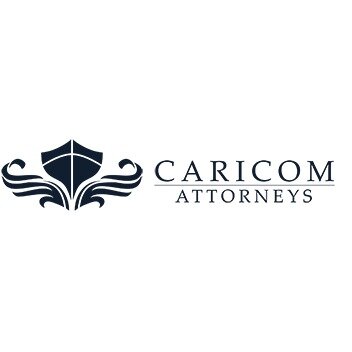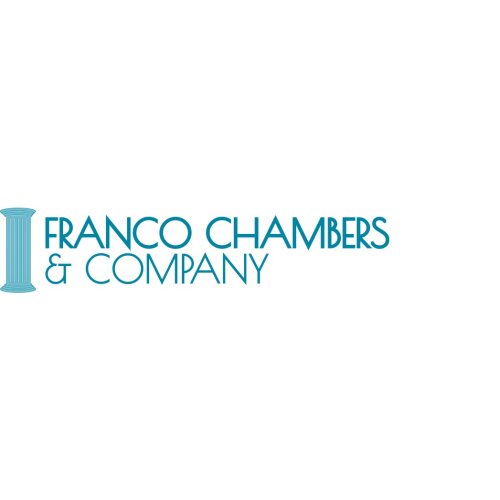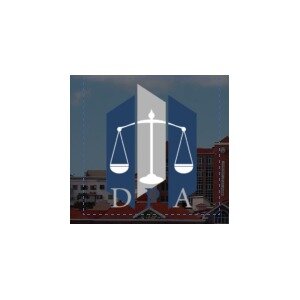Best Project Finance Lawyers in Grenada
Share your needs with us, get contacted by law firms.
Free. Takes 2 min.
Or refine your search by selecting a city:
List of the best lawyers in Grenada
About Project Finance Law in Grenada
Project finance involves the long-term financing of large infrastructure and industrial projects based on the projected cash flows of the completed project, rather than the balance sheets of the project sponsors. In Grenada, project finance plays a key role in the development of sectors such as energy, tourism, transportation, and public infrastructure. These projects often require complex legal structuring to ensure that all participants - including lenders, sponsors, contractors, and governmental authorities - are adequately protected, and that regulatory obligations are met.
Why You May Need a Lawyer
Project finance transactions are typically complex and involve multiple stakeholders. You may need a lawyer in Grenada for project finance if you are:
- Negotiating with international or local financial institutions for project funding
- Participating as a contractor or investor in a major infrastructure or energy project
- Seeking to understand or structure Public-Private Partnerships
- Faced with regulatory, licensing, or environmental compliance issues
- Drafting or reviewing project agreements including Engineering, Procurement and Construction (EPC) contracts, concession agreements, or loan documents
- Experiencing disputes during the construction or operational phases of a project
- Involved in land acquisition or transfer for project purposes
Local Laws Overview
Key aspects of project finance law in Grenada include:
- Investment Legislation: The Investment Promotion Act and related regulations govern the entry of foreign and local investments in Grenada, outlining incentives and requirements for project sponsors.
- Government Approvals: Many infrastructure or energy projects require permits, concessions, or licenses, often from the Ministry of Finance or sector-specific authorities.
- Security Interests: The ability for lenders to take security over project assets or revenues is critical. Grenadian law allows for various forms of collateralization, and the legal enforceability of these arrangements is vital for project finance structures.
- Environmental and Land Use Regulations: Projects may require environmental impact assessments and compliance with land use and planning ordinances, overseen by agencies such as the Physical Planning Unit.
- Banking and Exchange Controls: Any cross-border financial flows are subject to review under the Banking Act and policies of the Eastern Caribbean Central Bank.
- Dispute Resolution: Grenada’s legal system is based on English common law and provides for dispute resolution through the local courts or through arbitration if agreed upon in project documents.
Frequently Asked Questions
What is project finance and how does it differ from traditional financing?
Project finance is a method of funding in which the project's cash flows and assets form the basis for securing and repaying loans. Unlike traditional financing, lenders have no recourse to the sponsor's other assets if the project fails.
Who are the typical parties involved in a project finance transaction in Grenada?
Common parties include project sponsors, lenders or financial institutions, contractors, suppliers, governmental agencies, and sometimes multilateral development banks.
Are there incentives for foreign investment in project finance in Grenada?
Yes, Grenada offers incentives such as tax concessions and duty-free importation on capital equipment for qualifying projects, especially in sectors like tourism and renewable energy.
What government approvals are usually necessary?
Depending on the sector, approvals may be required from the Ministry of Finance, Physical Planning Unit, and sector-specific regulators (such as energy or utilities). Environmental clearance is also common.
Can project assets or revenues be used as security for loans?
Yes, Grenadian law allows lenders to take security interests over project assets and assign project revenues, subject to proper registration and documentation.
How are disputes resolved in project finance deals?
Most disputes are resolved through Grenadian courts, but arbitration and alternative dispute resolution methods can be contractually agreed upon by the parties.
Is it necessary to establish a special purpose vehicle (SPV) for project finance?
It is common to establish an SPV in Grenada to isolate project risks and facilitate financing, but it is not always mandatory depending on the project structure.
What legal documents are essential in a project finance transaction?
Key documents include loan agreements, security agreements, direct agreements with contractors, concession or license agreements, and shareholder agreements for SPVs.
Are there foreign exchange controls affecting project finance?
The Eastern Caribbean Central Bank regulates cross-border payments. While foreign investments are welcomed, currency movements may require approval or reporting.
What role can a lawyer play in my project finance transaction?
A qualified lawyer can advise on project structure, due diligence, negotiating and drafting contracts, obtaining necessary licenses, and ensuring regulatory compliance throughout the project.
Additional Resources
For more information and assistance with project finance in Grenada, consider reaching out to:
- Grenada Investment Development Corporation (GIDC) - For investment incentives and project approval guidance
- Ministry of Finance, Planning, Economic Development and Physical Development - For licensing, fiscal incentives, and general government policy
- Physical Planning Unit - For land use and environmental assessment queries
- Eastern Caribbean Central Bank - For banking regulations and currency control matters
- Grenada Bar Association - To find qualified local attorneys with experience in project finance
Next Steps
If you are considering a project finance transaction in Grenada, start by outlining your project objectives and identifying the stakeholders. Next, consult a qualified local attorney who can guide you through regulatory requirements, contractual negotiations, and risk management strategies. Early legal advice can help avoid costly pitfalls and streamline your project's development and operation. Gather all relevant documents and be prepared to discuss your project's financial, technical, and legal dimensions with your counsel. Taking a proactive approach ensures your interests are well protected from inception to completion.
Lawzana helps you find the best lawyers and law firms in Grenada through a curated and pre-screened list of qualified legal professionals. Our platform offers rankings and detailed profiles of attorneys and law firms, allowing you to compare based on practice areas, including Project Finance, experience, and client feedback.
Each profile includes a description of the firm's areas of practice, client reviews, team members and partners, year of establishment, spoken languages, office locations, contact information, social media presence, and any published articles or resources. Most firms on our platform speak English and are experienced in both local and international legal matters.
Get a quote from top-rated law firms in Grenada — quickly, securely, and without unnecessary hassle.
Disclaimer:
The information provided on this page is for general informational purposes only and does not constitute legal advice. While we strive to ensure the accuracy and relevance of the content, legal information may change over time, and interpretations of the law can vary. You should always consult with a qualified legal professional for advice specific to your situation.
We disclaim all liability for actions taken or not taken based on the content of this page. If you believe any information is incorrect or outdated, please contact us, and we will review and update it where appropriate.
Browse project finance law firms by city in Grenada
Refine your search by selecting a city.













